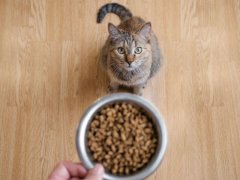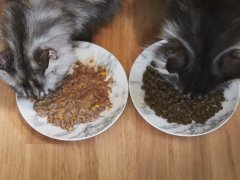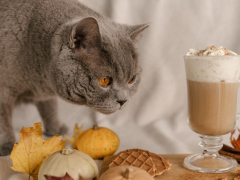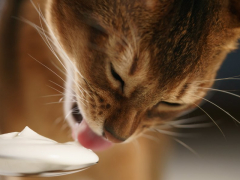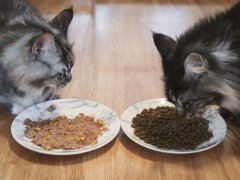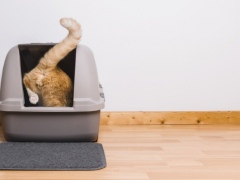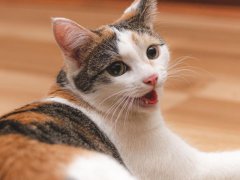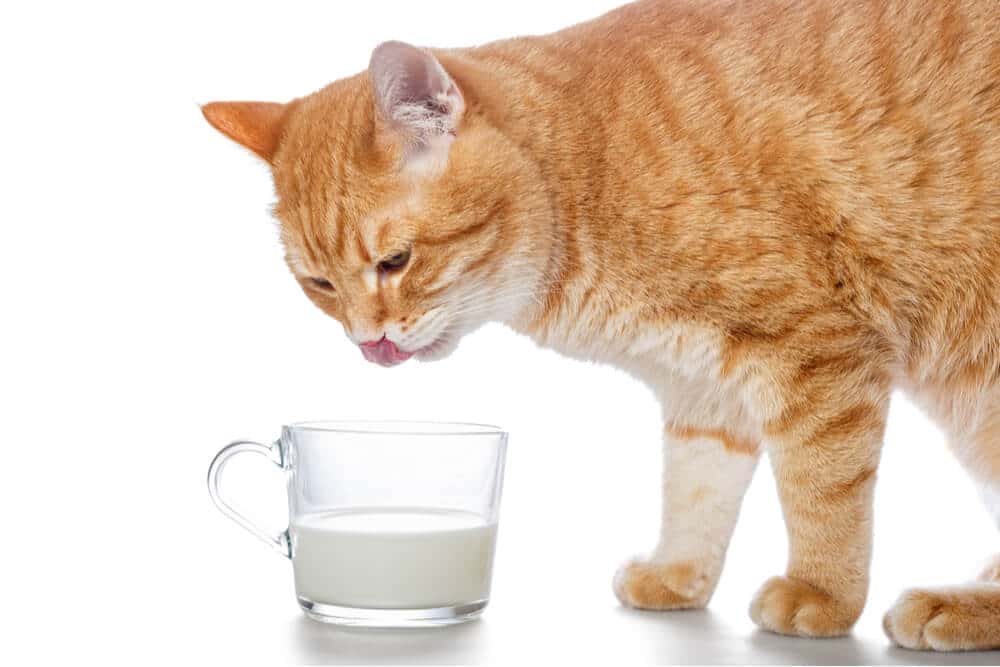
In this article, we’ll take a close look at the relationship between cats and milk, exploring milk’s nutritional benefits and health effects, why cats shouldn’t drink too much milk, and what you can give your cat instead.
Can Kittens Drink Milk?
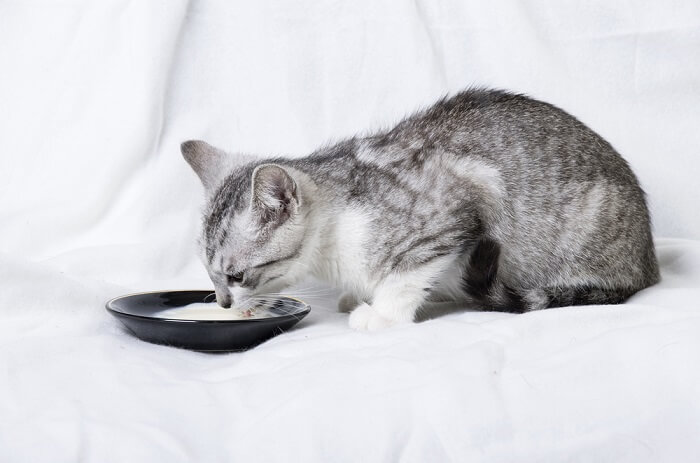
There’s no denying it. Cats can definitely drink milk. You’ve seen the illustrations of kittens clustered around a saucer of milk. You’ve seen milk-flavored cat treats. Maybe you’ve even watched your own cat lapping it up.
Whether it’s from a cow, goat, or mama cat, kittens and adult cats can and do drink milk. There’s also no denying that milk is a natural part of the feline diet—when it comes from Mom.
Like all mammals, kittens rely on their mother’s milk as their sole source of nutrition. A cat’s milk has the perfect balance of essential nutrients to help kittens grow and thrive.
And like all baby mammals, kittens produce an enzyme called lactase. This enzyme’s primary job is to digest lactose, also known as milk sugar. When kittens drink their mom’s milk, those lactase enzymes go to work on the milk sugar, breaking it into glucose and galactose, two simple sugars that absorb easily into the bloodstream.
Without lactase, that lactose would be indigestible.
Instead of breaking down and moving smoothly into the body, the milk sugar would stay intact and move into the colon. There, the undigested lactose would start fermenting, draw water into the colon, and cause the symptoms we associate with lactose intolerance—bloating, diarrhea, and gas.
Is Milk Bad for Cats?
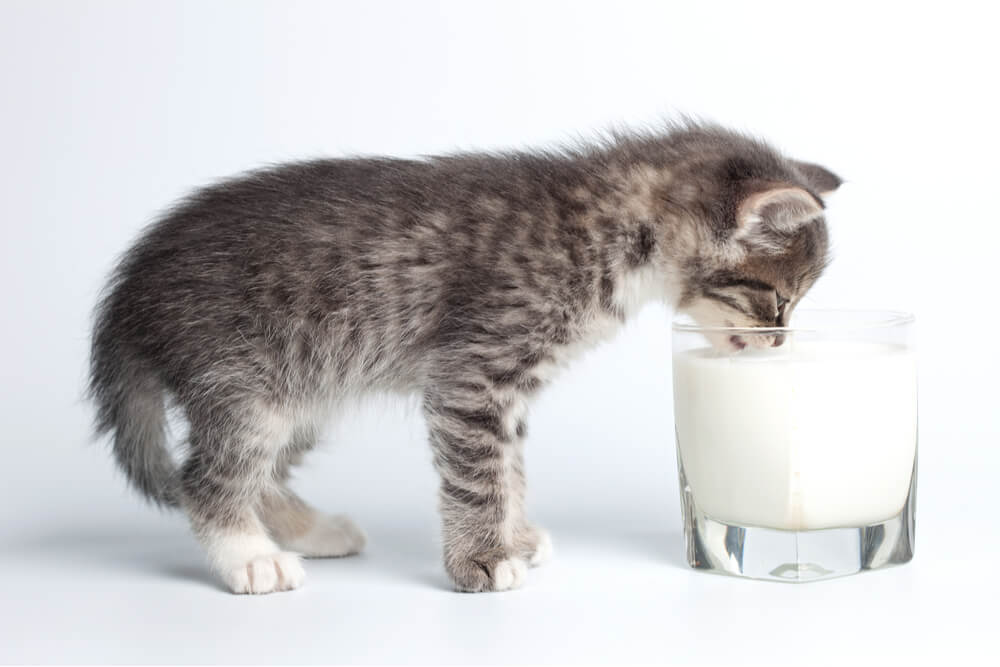
To help them digest the milk sugars in their mom’s milk, kittens naturally produce an enzyme called lactase. As they grow up, they produce less of this enzyme and many become lactose-intolerant.
After Kittens Are Weaned, They Start Producing Less Lactase. Most Become Lactose-Intolerant. And herein lies the problem with cats and milk. Cats are, for the most part, lactose-intolerant animals.
Also Read: Weaning Kittens: Tips For Successful Weaning
If an adult cat tries to drink the same amount of milk they had as a kitten, they’d get an upset stomach. They just don’t have the lactase enzymes needed to make the milk digestible.
Small amounts of milk won’t make your cat sick, but more than a tablespoon or so could cause digestive distress.
There are a few exceptions to this rule.
Cats can more easily digest lactose-free milk and other products made for lactose-intolerant people. They can also eat other low-lactose dairy products, including most hard cheeses, yogurt, and sour cream.
As with all foods not intended or balanced for cats, these should be considered occasional treats that make up less than 10% of a cat’s total calories for the day.
Cats Don’t Get Much Nutritional Value Out of Milk.
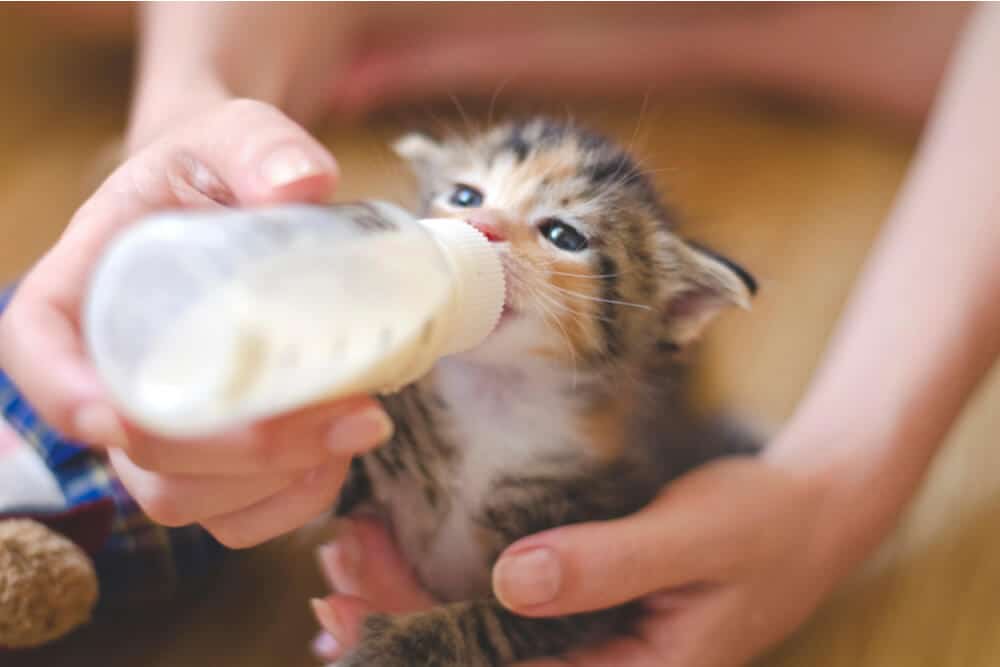
Kittens require the unique balance of nutrients present in their mother’s milk. Anything besides this milk or a specially-formulated cat milk replacer will lead to nutritional deficiencies.
Nursing kittens rely on their mother’s milk to survive, but any other type of milk fails to deliver the well-rounded nutrition your kitten or cat needs. It’s not a nutritionally complete food or even close. If you choose to give your cat milk, make it a very occasional treat.
It’s not a substitute for a nutritionally complete and balanced diet. And if you’re caring for a young kitten, never substitute cow’s milk for mother’s milk or kitten formula.
What Can You Give Your Cat Instead of Milk?
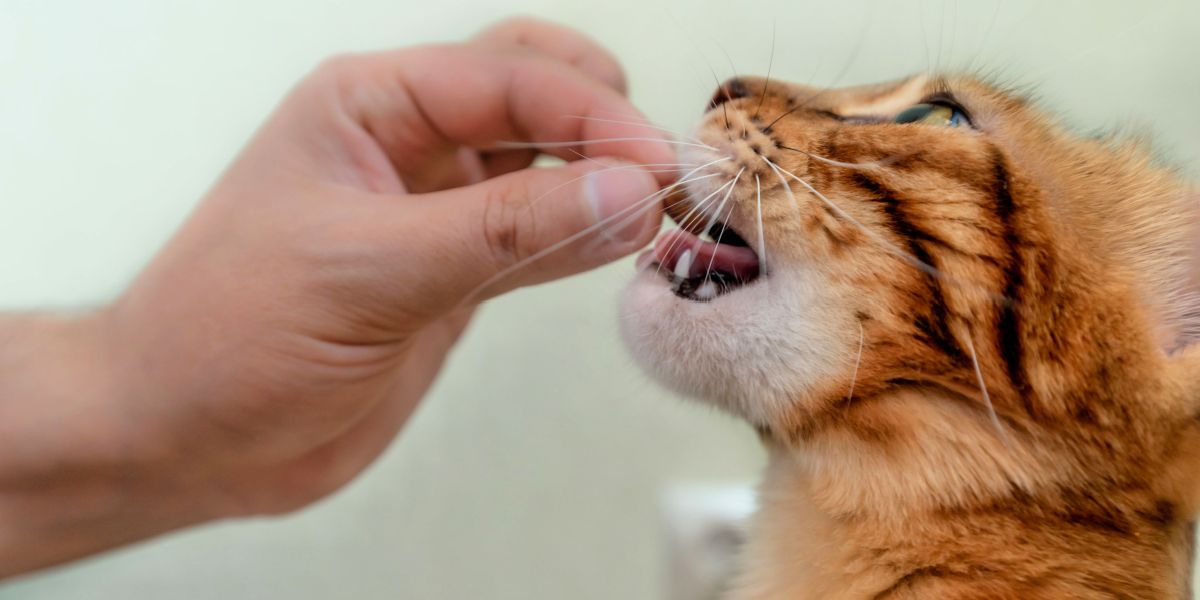
If your cat loves milk, feel free to give it to him as an occasional treat. As long as you’re not giving him so much that it triggers a reaction or makes a big dent in his daily calorie budget, milk can be a great treat. If you want to play it safe with lactose intolerance, opt for a lactose-free product.
Cats who love milk and want more than just a few sips might enjoy specially-formulated cat milk products, often found on the cat food aisle of pet stores and groceries. These products are lactose-free drinks made with cats in mind. Some are fortified with taurine for an amino acid boost.
For very young kittens, there’s no substitute for mother’s milk or a specifically formulated kitten formula. Cat milk replacers are the only safe choice for bottle-feeding a kitten.
